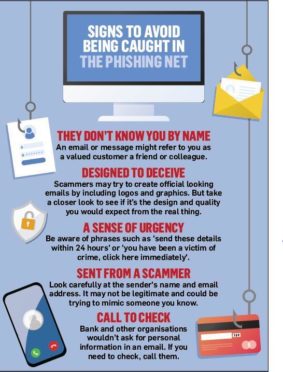Western Isles residents are being warned to be on their guard against a new scam circulating the island.
Fraudsters are calling households and telling them they have overpaid council tax arrears of as much as £2,000.
The scammers, who are posing as employees of a debt recovery company, are then pledging to reclaim the overpayment on their behalf.
Trading standards are advising people to end the call immediately and not to give out any personal information.
In a statement, a spokesman said: “To make the call sound more genuine the callers say they are calling from a business based in London and give their Companies House registration number.
“The number quoted is from a business which is now dissolved and is no longer trading.
“Our advice is not to give callers any financial details. These callers are trained in high pressure sales techniques and are very persuasive, their aim is to get your bank card details.
“We advise not to engage with the caller and to end the call.”
In January, the team distributed a fresh set of guidelines in an attempt to protect islanders from unsolicited scams.
Unsolicited e-mails or calls from the NHS, World Health Organisation or the government have been circulated this year, and people are being urged to be on the lookout for anything suspicious – such as poor spelling or grammar, a bad e-mail address or requests for payment details.
Read more: Can you spot a scammer? Tips to avoid being hooked by phishing fraudsters

